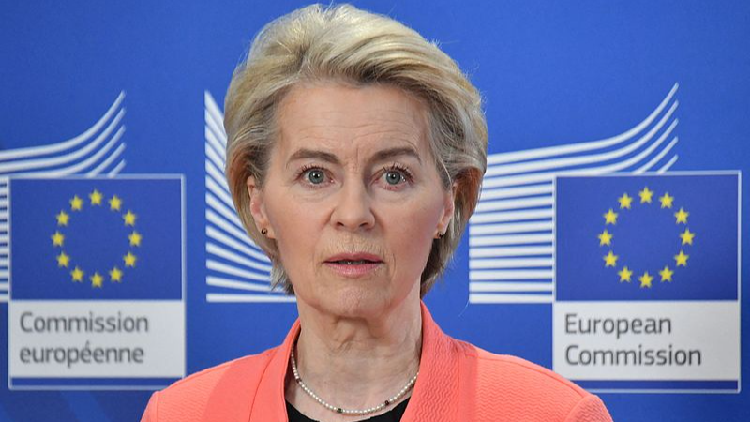Europe Criticizes Trump's Tariffs, Warns of Global Economic Harm
European leaders expressed strong opposition on Thursday to the newly announced U.S. tariffs, with the EU indicating it was prepared to implement countermeasures while also leaving the possibility open for urgent negotiations. On Wednesday,...

On Wednesday, U.S. President Donald Trump revealed plans for a 20 percent tariff on imports from the European Union as part of broader measures that have raised concerns about a potential global trade war.
Trump has previously enacted tariffs on European steel and aluminum imports, as well as on cars and auto parts.
Ursula von der Leyen, the chief of the 27-member bloc, described the tariffs as a "major blow to the world economy" and stated that Brussels was "preparing for further countermeasures."
"I deeply regret this choice," von der Leyen remarked during a visit to Uzbekistan. "There seems to be no order in the disorder. No clear path through the complexity and chaos that is being created as all U.S. trading partners are hit."
Nevertheless, she emphasized that it was "not too late to address concerns through negotiations," urging a composed reaction to the tariff threats facing the bloc.
Germany expressed support for a "negotiated solution." Economy Minister Robert Habeck stated that the EU stands ready to deliver a "balanced, clear and determined response" if talks do not yield results.
In France, President Emmanuel Macron plans to meet with leaders from sectors affected by the tariffs. Government spokeswoman Sophie Primas noted that the bloc was "ready for a trade war" and was set to "attack online services."
Although no longer part of the EU, Britain expressed hope that an economic deal could "mitigate" the impact of the 10 percent tariff that Trump is imposing on the UK.
"Last night the president of the United States acted for his country, and that is his mandate. Today, I will act in Britain's interests with mine," UK Prime Minister Keir Starmer told business leaders at his Downing Street office on Thursday. He added that trade negotiations would carry on with Trump’s administration and that "we will fight for the best deal for Britain."
Starmer emphasized that "nobody wins in a trade war" and promised to approach the situation with "pragmatism, cool and calm heads."
He acknowledged to business leaders that "clearly there would be an economic impact" but assured that the government would "fight for the best deal."
Italy's Prime Minister Giorgia Meloni criticized the new tariffs as "wrong," asserting that the bloc would do anything it could "to work for a deal with the United States, aiming to prevent a trade war that would inevitably weaken the West in favor of other global actors."
Foreign Minister Antonio Tajani announced plans to meet with EU trade chief Maros Sefcovic in Brussels on Thursday to deliberate on a response that would be "based on a pragmatic approach, based on dialogue."
In Switzerland, where tariffs were set at 31 percent, President Karin Keller-Sutter stated that the government would rapidly determine subsequent steps, reiterating that respect for international law and free trade are "fundamental."
Polish Prime Minister Donald Tusk highlighted that friendship with the United States necessitates a partnership; thus, "really and truly reciprocal tariffs" would be essential.
Concerns are also mounting in Europe that Trump's increased customs duties might provoke a surge in low-cost goods from other countries.
Bernd Lange, head of the EU parliament's trade committee, criticized Trump's actions as "unjustified, illegal, and disproportionate."
European industry associations called the U.S. tariffs counterproductive for both nations and consumers.
The German Automotive Industry Association asserted that the tariffs would "only create losers" and urged the EU to take "necessary force" while maintaining a willingness to engage in negotiations.
The Association of the German Chemical Industry advised the EU to "keep a cool head," anticipating that "a spiral of escalation would only increase the damage."
The EU has already faced several U.S. tariff announcements since Trump's re-election in January, including a 25 percent levy on auto imports that was enacted on Thursday.
Producers in the bloc have also been impacted by a 25 percent U.S. tariff on steel and aluminum from around the globe, prompting Brussels to promise countermeasures set to take effect in mid-April.
U.S. Treasury Secretary Scott Bessent cautioned countries against retaliation.
"Sit back, take it in," he told Fox News. "Because if you retaliate, there will be escalation."
Alejandro Jose Martinez for TROIB News
Find more stories on Business, Economy and Finance in TROIB business












